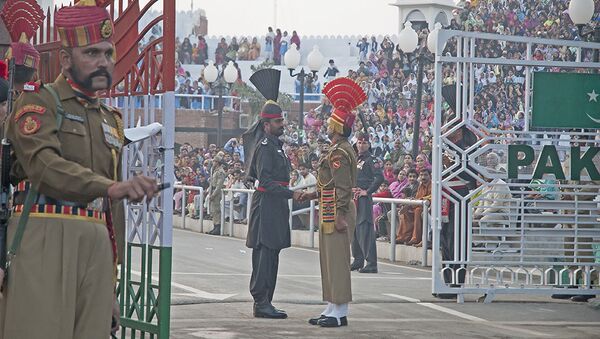During her daily media briefing, State Department spokesperson Morgan Ortagus announced that there has been no change in Washington’s policy on Kashmir.
She said the US sees Kashmir as a bilateral issue between India and Pakistan and it is up to both countries to decide the way forward on the issue.
"It's something that we've called for calm and restraint by all parties. We want to main peace and stability, and we, of course, support direct dialogue between India and Pakistan on Kashmir and other issues of concern", Ortagus told reporters.
"We have a lot of engagement with India and Pakistan. Obviously, we just had Prime Minister (Imran) Khan here, not just because of Kashmir. That's certainly an incredibly important issue and something that we follow closely. But we have a host of issues that we work with India on quite closely and that we work with Pakistan on quite closely", she added.
Replying to a question on Kashmir, Ortagus said if there was any change in America’s policy on Kashmir she, as the State Department spokesperson would not be making the announcement publicly.
On Pakistani Prime Minister Imran Khan's allegations of human rights violations taking place in Kashmir, Ortagus said, "I really don't want to go beyond what we've said, because it's such a tenuous issue. It's something that we're talking to them about quite closely".
"The United States, whenever it comes to any region in the world where there are tensions, asks for people to observe the rule of law, respect for human rights, respect for international norms. We ask people to maintain peace and security and direct dialogue", she added.
Deputy Secretary of State, John J. Sullivan, she informed, would be travelling to Bhutan and India next week. In India, she said Deputy Secretary Sullivan would meet External Affairs Minister S Jaishankar in the national capital Delhi and also address the India-US Forum.
Ortagus said efforts would be made to advance the partnership between the two nations, which Washington sees as critical to preserving a rule-based order in the Indo-Pacific region.
The US statement comes after India revoked specific provisions of Article 370 of its Constitution to remove the special status granted to the then state of Jammu and Kashmir. India also, through an act of Parliament, decided to bifurcate the state into two union territories -- Jammu and Kashmir, and Ladakh – and bring them under direct federal rule to provide better governance and socio-economic benefits.
Kashmir has been a bone of contention between India and Pakistan since they both gained independence from Britain in 1947. Both nations claim the entire region but control only parts of it. In the past 70 years, the nuclear-armed foes have fought two wars and have been engaged in a limited conflict over the region.


